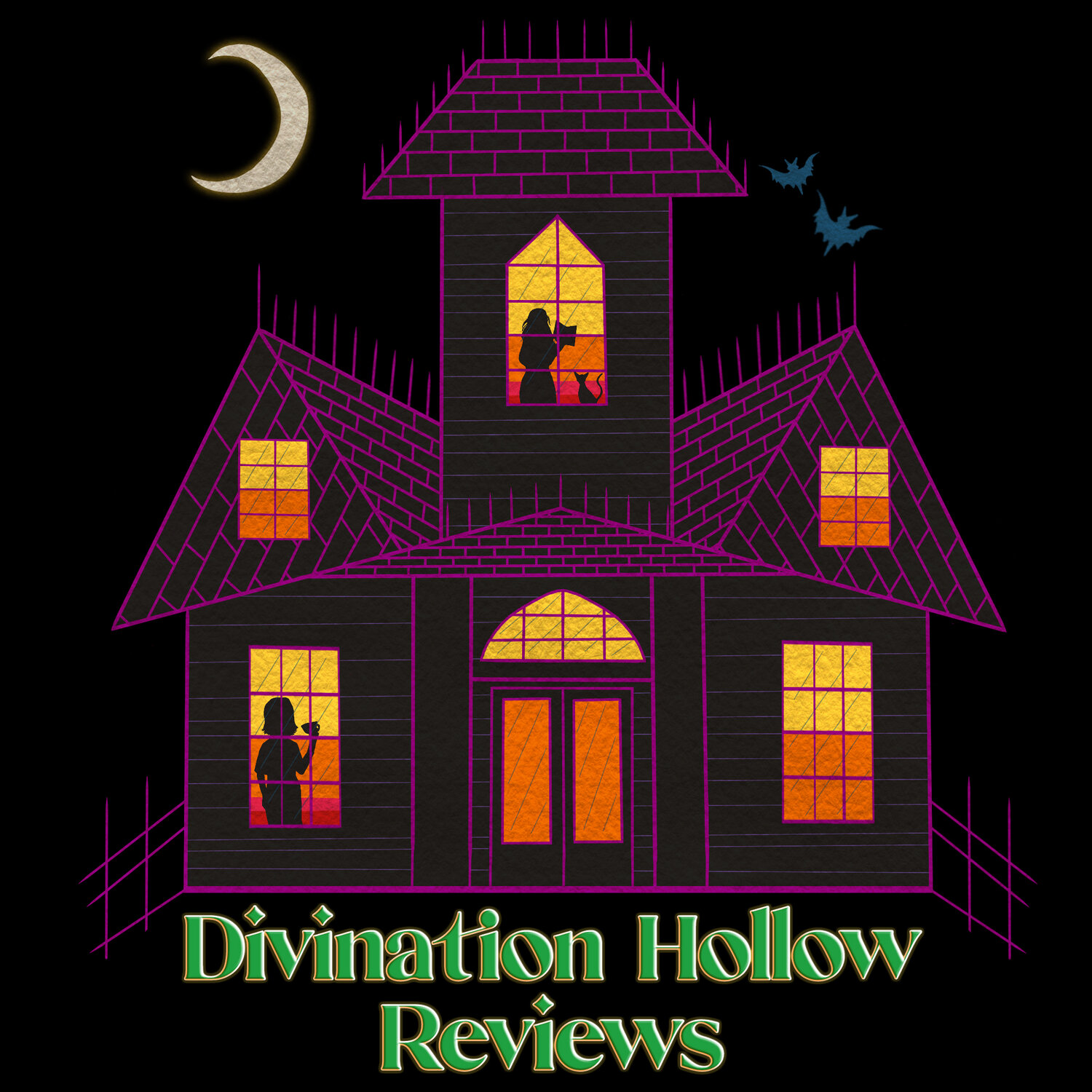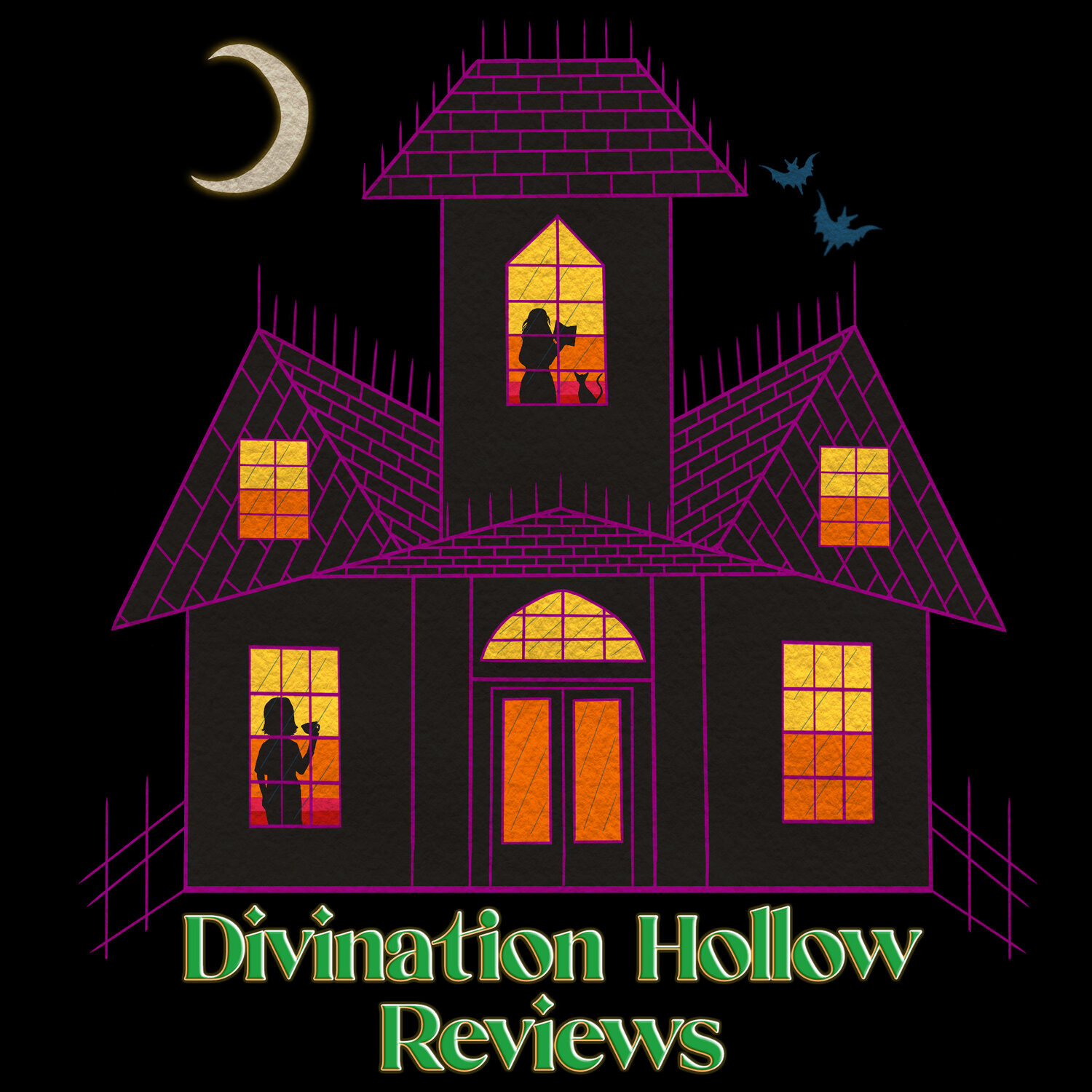Catharsis Through Writing Horror
Welcome to our 2nd Annual Birthday Bash as Divination Hollow Reviews!
We’ll be celebrating all month long with a series of posts by our team and esteemed colleagues and this year’s theme is “Going to the Movies!” Join us as we share themed content with special “tickets” for each category inspired by cinema.
Celebrate with us!
Catharsis Through Writing Horror
It’s not a stretch to think a lot of horror writers find writing in the genre cathartic. It’s a genre ripe for exploration, for really digging deep into the human psyche. It allows us to sink into the POV of heroes, victims and villains, and gives us a place to look at our own innermost thoughts.
Horror as a genre is broad. There are a huge number of subgenres, and each one allows us to really explore our own ideas about identity, the world, our relationships, injustices, cruelties and so on. In some ways, horror can be unique in this regard; it allows us to dig into a deeper well of darkness, and pull out from our own hidden thoughts.
Quiet Horror might explore more of the psychological, while Body Horror relies on physicality. Modern Gothic gives space to wrestle with history and the stains left behind, while genre blending Sci-Fi and Horror pushes us into considering what darkness the future might hold, in the form of exploration or technology.
A lot of people drawn to reading and writing horror often seem to be those who, in some way, feel they are outcasts from more ‘mainstream’ society. Whether it’s because we are marginalised in some way, or because of our interests growing up, being bullied when younger, etc. it’s hard not to see a trend in people drawn to the genre with literature. And these elements, this sense of being an outcast, often comes with some form of trauma.
Horror gives us a large space to explore that trauma, no matter what it is. And through the act of writing, we can create worlds where that trauma is healed or even, sometimes, not, and through this we can process our own experiences. As an example, some might use horror to grapple with feelings of generational trauma. Sexual assault survivors can take their personal horror and put it on the page, perhaps coming to a deeper understanding of what happened, or able to give the survivor in the book the sort of closure they might not be able to access.
It's no wonder, then, that horror is so appealing to those who are either or see themselves as outcasts. Horror attracts those who are most likely to experience trauma, and the reasons for this could be vast. It might be that some want their own experiences reflected back at them, but perhaps with a different ending. Some horror shows evil being defeated, or might have the traumatized character able to use their trauma to escape from whatever messed up situation they find themselves in.
From my few years really getting into the Twitter horror community, interacting with other horror writers and reading more and more horror, it’s not hard to see the way our own lives influence the works we write. This is, of course, true for any genre, but horror has a special place for people who find they need to work through something. We can see this, at times, in both a literal and allegorical sense.
On top of this, the historical dominance of certain demographics in horror means many of us are used to seeing our stories and our trauma moulded into something that misrepresents the experience, or is badly handled. Reclaiming this can be an incredibly satisfying experience. It’s also partly why we have to be careful before casting aspirations over writers, however we can still critique wrong, harmful, or misused representations.
As an example, it would be wrong to say no one should write about sexual assault, or even that only victims should. We should not put survivors in a situation where they have to disclose that aspect of their history in order to write about it. What we can do, however, is perhaps point out if a narrative plays into myths regarding assault, or vividly details it in such a way that it is sexualised, etc. It’s an incredibly tricky line to walk, but as a writer, putting this in our stories can be a way of reclaiming what happened to us, and working through it, and we cannot shut people out from being able to do so.
This doesn’t just apply to sexual assault, or to trauma, but to lived, everyday experiences, too. Those who pick what books are published – whether it’s an editor at a traditional publisher or at an indie publisher – often might miss the small elements that show if someone’s writing comes from their own experience, or if it’s someone else mining another person’s life for their own benefit. It’s why there has been such a focus on ownvoices, but this comes with its own set of problems (which has been delved into previously, here and elsewhere).
I’ve said it before, but I could not write about racism as effectively as someone who has directly experienced racism, because I am a white woman who has not been discriminated against because of the colour of my skin. I do, however, know what it’s like to be Welsh in a majority English setting and have that used against me. This experience is nothing compared to racism, but if a Welsh person read a book that was about someone Welsh in England experiencing sheep shagging jokes or being presumed stupid because of their accent, I guarantee the reader would be able to identify, just from the writing, if the writer had truly experienced that, or had just witnessed it, or even been a participant.
This can be a problem, but if you pay attention you really can differentiate in the prose. I’ve read various books by now that deal with sexual assault, specifically rape, and there’s a major difference when you’re reading it by someone who has never experienced that, versus someone who had. Commonly – too commonly – I’ve seen men writing about sexual assault against women, and it’s one of the very few things that will trigger me when reading fiction. Yet I’ve read women who have it in their work, and it doesn’t have the same effect. In fact, reading it from someone who may have experienced it or has had similar experiences, can be cathartic even as a reader, and kind of empowering. So imagine how satisfying it can be to turn your own trauma around in your own writing.
Bad things happen all the time, and they’re more likely to happen to people who are marginalised in some way. Especially in a genre like horror, we have to give those people room to explore their feelings in their work, and as readers we can gain from that too. It’s important to note, too, that writing something using your own trauma can be exceptionally exhausting, as you dig into it and yank it out to put on the page. Even if it’s a minor element of the story, we should appreciate those writers who do it, because it truly isn’t easy.
Last year, editing A Woman Built By Man was both an exhausting yet truly satisfying experience. It involved reading a lot of short stories involving pain, trauma, and mirroring real life experiences. It was hard not to feel incredibly grateful to all the writers who submitted. Catharsis isn’t easy – exhaustion often comes on the heels of it – but I feel so incredibly proud of what me and S.H. Cooper put together with this, and the stories we were able to showcase.
Horror feels, at times, like a genre built on trauma. Some of the most effective work is produced when a writer taps into their own emotions, and though it comes with exhaustion and perhaps revisiting painful memories, I don’t think I’m the only writer who feels cathartic after writing something particularly personal, and it’s without a doubt something we need to nurture, and embrace, and appreciate, because it works for both writers and readers.
Recommended Books
Transmuted by Eve Harms
Mexican Gothic by Silvia Moreno-Garcia
The Hobgoblin of Little Minds by Mark Matthews
We Are Wolves Edited by Gemma Amor, Laurel Hightower, and Cynthia Pelayo
The Fourth Whore by E.V. Knight
By Elle Turpitt
Twitter & Instagram: @elleturpitt
www.elleturpitt.com



